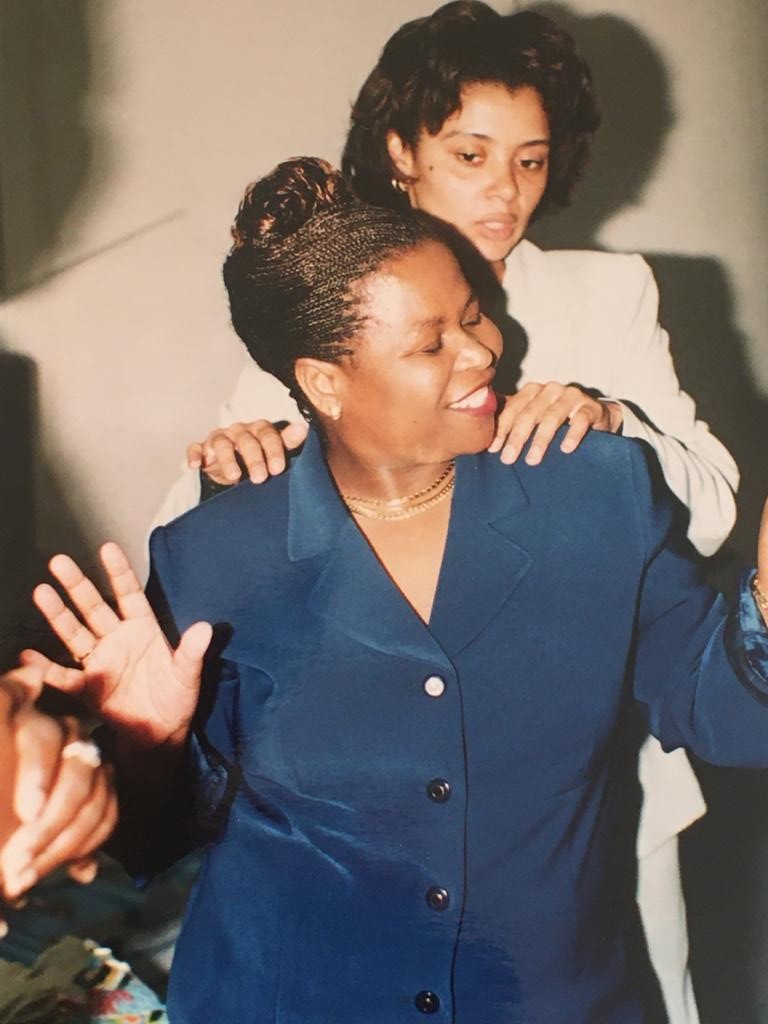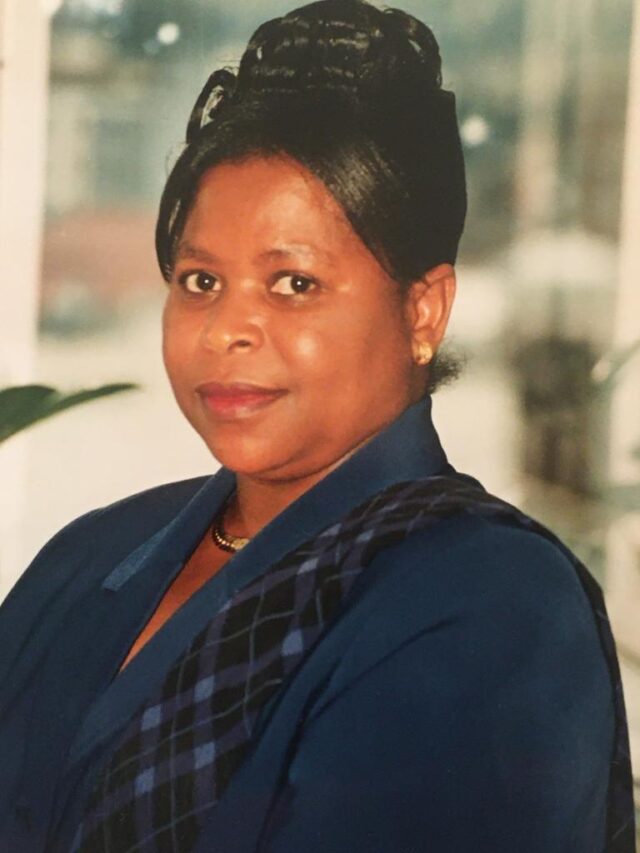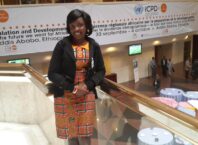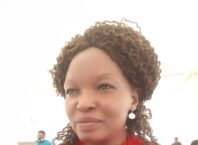In each issue of Sibo-Lifestyle Magazine, we celebrate individuals that dream big, pursue their dreams and are pursuing success on their own terms. I’d like us to learn from them, to see how like us they are or how they differ from us. For us to see what we can do differently or continue to do to pursue our own dreams and success. This month we delve deep into the life of Nomhle Veli.
In past issues of the magazine I’ve interviewed numerous young women pursuing their dreams and achieving success in their different fields. This month I decided to go another route. I chose a woman who will be celebrating her 60th birthday later this year so that we could gain some very much needed wisdom from her, as someone who has done what most of us are still chasing. I had the privilege of sitting down with Nomhle Veli to find out exactly how she went from living in a village in Plumtree, Zimbabwe and sleeping on the floor to working for an international organisation, travelling around the world in business class and investing in real estate.
I hope her life shows you that what might seem like a bad thing at one point may turn out for your good in the future. As Steve Jobs said, you connect the dots looking backwards. Her story is one for the history books because how many of us can say they were part of a mass abduction by armed freedom fighters and lived to tell the story? Let’s gather around the fire, as they did back then, and let Nomhle Veli regale us with tales from her eventful 6 decades on this earth.
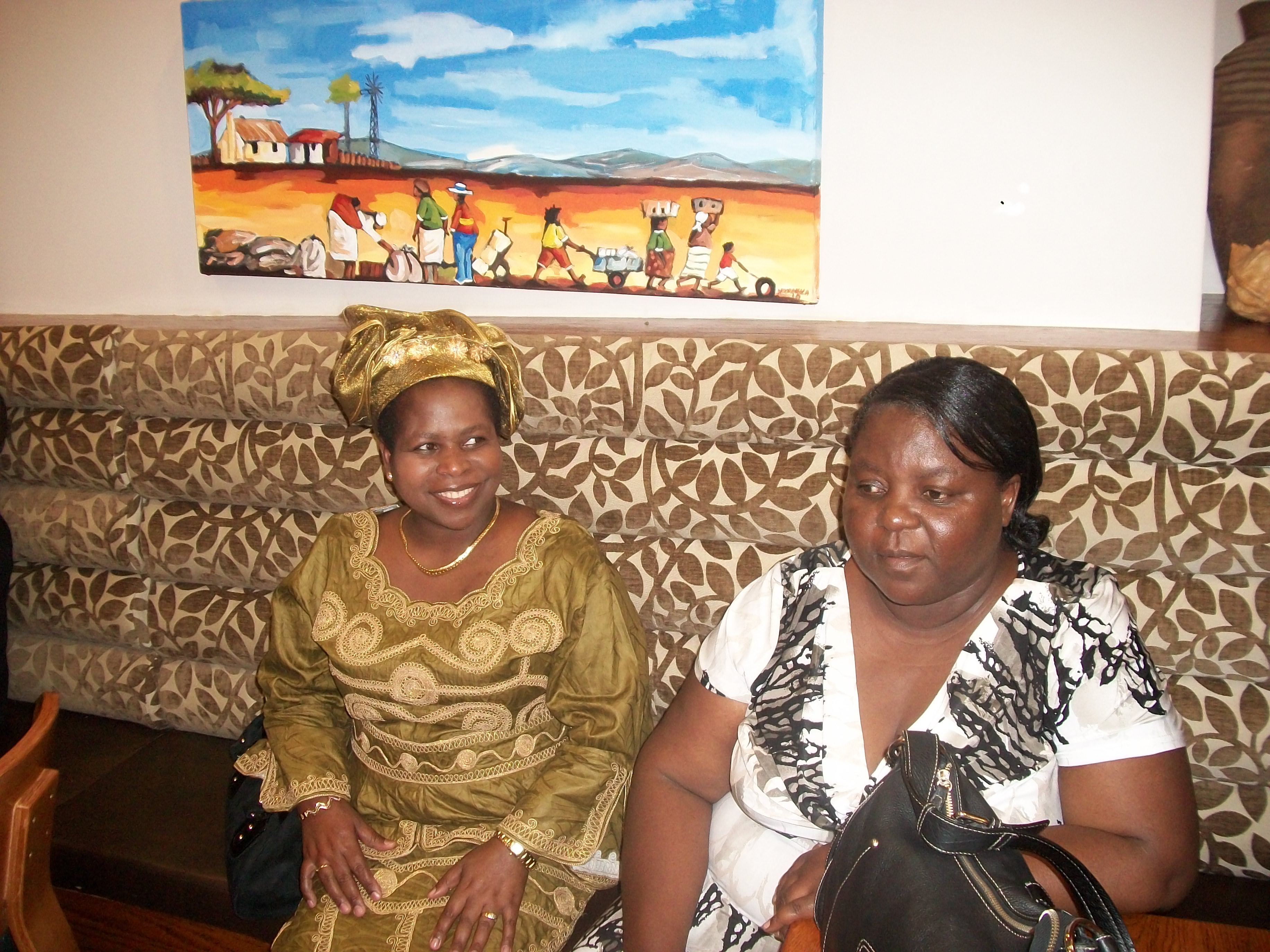
Tell us about your childhood. What was life like for you growing up?
I was born in Plumtree, Bulilima, in an area called Gwambe. That’s where I grew up. I went to Gwambe Primary School. From my village to the school, I used to walk 6kms because the school was 6kms from my village so I used to walk 12kms every day to and fro. Fortunately I didn’t do this alone, I was with other kids. We were usually in a group of 4 or 5.
At home we used to sleep on the floor. We would put our blankets on a reed mat. In the morning we would tidy up. I used to enjoy that. I didn’t see anything wrong until I went to boarding school, at Tegwane High School (now Thekwane High School,) where I had my own single bed. We were taught by the older girls how to do your bed. I enjoyed that. I used to look forward to going back to school during the holidays because I missed my bed. I never told anyone at school that where I came from I didn’t know what a bed was, I pretended as if all was well. It didn’t matter where I came from, at school we were all the same.
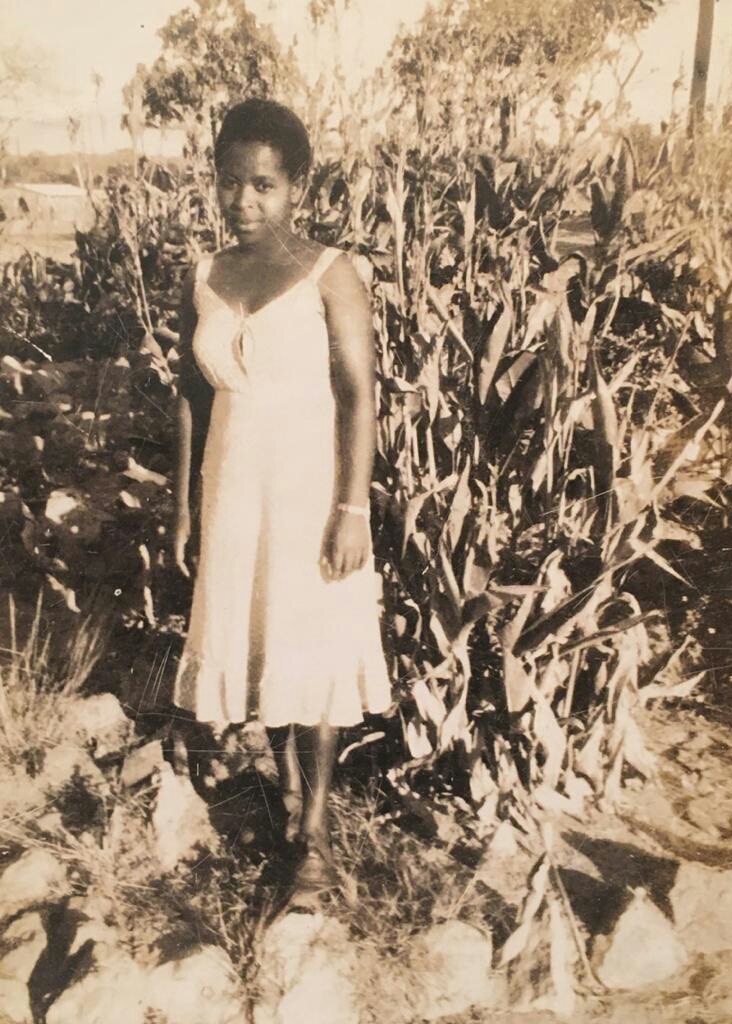
What made you decide to go to Tegwane High School?
In 1974 some girls from Tegwane High School came to our school for a Christian Union function. I saw these girls, some of them were doing O’level and some were doing A’level. The way they were dressed in their uniforms impressed me. I was so inspired. I said to myself when I go for my Form 1, I would love to go to Tegwane. I told my father and he said “but it’s very expensive, who’s going to pay?” I told him “that’s where I want to go, not any other school.” He started saving for it and when it was time for me to go he had saved enough.
What did your father do for work?
He was working in South Africa as a gardener, for this really rich man called Mr Landau. Anytime when we didn’t have money for fees my father would tell him and he would pay for my fees.
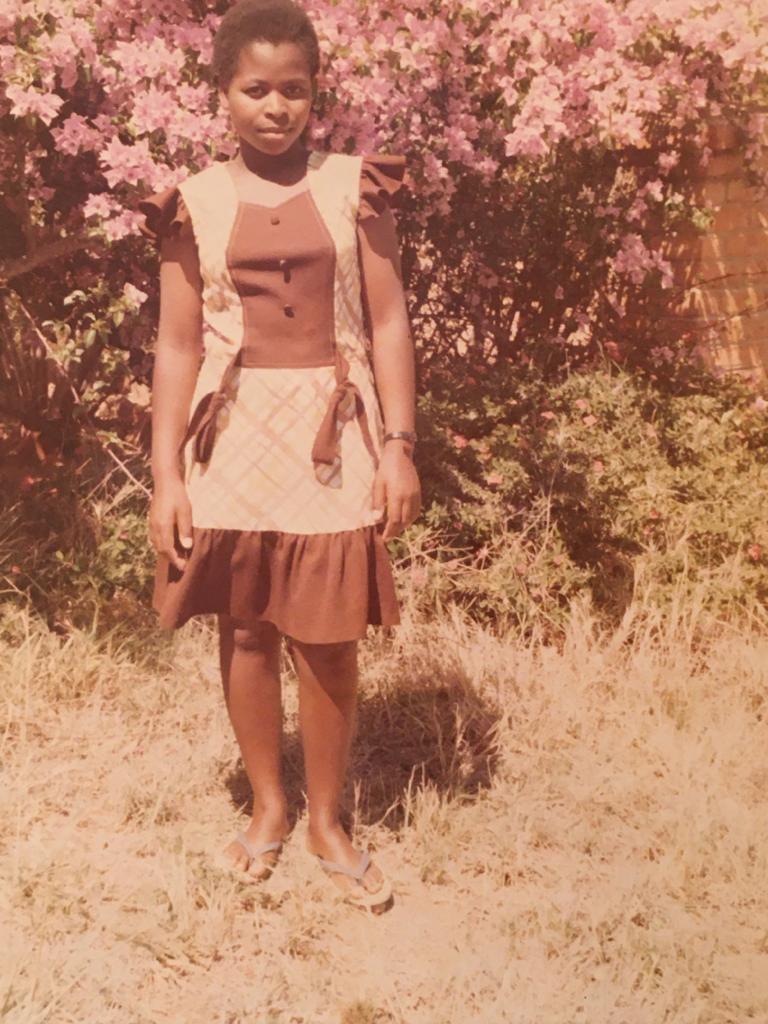
Your life took a turn when you were 16 years old, what happened?
It was in March 1978, when freedom fighters came to our school and all the students and the teachers were told we were going to Botswana. Only the white teachers were told they could remain. They recruited the whole school, without giving anyone a choice. It was the middle of the night when they came, because we were already sleeping. I was a prefect in my dorm. When one of the A’level students came to wake me up, she just called my name. When I woke up I saw her and there were these 4 heavily armed men with her. They looked at me and they told me “you’re not dreaming, just wake up all the other students, without screaming.”
I went around quietly waking up all the children in the dorm one by one. They had said if you scream we shoot. They told us to get out of the dorm. I went wearing a nightdress. By the time we got near the dining hall all the other students were there, including the teachers. They told us “Today you’re going to join the liberation struggle. You can’t be seated here learning when others are in the struggle.” I was wearing a nightdress and some slippers. Even though I was scared, I had to be strong and approached one of the men and begged him to allow me to go and change into proper clothes. He said “You’re wearing a petticoat, you think you’re going to a wedding?” Three of them accompanied me to the dorm to change. I took a dress and put it on top of the nightdress. I didn’t have time to search for shoes so I went wearing slippers.
From Tegwane we walked to Botswana as a group in the middle of the night. We were walking in the bush, not following proper roads. When we got to Botswana they made us sit under the trees so that the Rhodesian army wouldn’t see us. We took cover under the trees. After a few hours some trucks came and we were driven to Francistown.
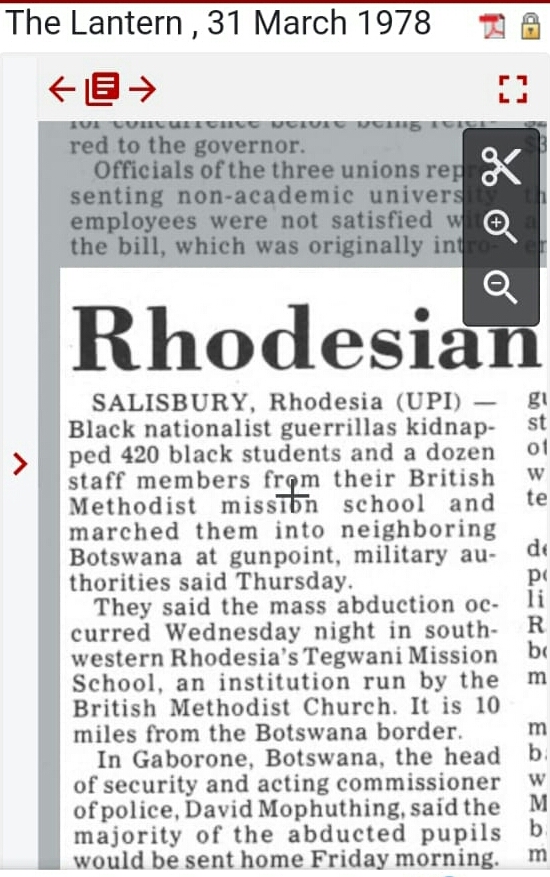
When we got to the Francistown Police Camp we were told the Botswana Government said there is no way that all the students and teachers could just wake up one day and decide to join the liberation struggle. The Rhodesian Government had already called the Botswana Government about their missing students and teachers. They told the Botswana Government that those who want to come back should come back.
We were therefore told those who want to go and join the liberation struggle should sit on one side and those who wanted to go back should sit on the other side. I chose to join the liberation struggle. From those who chose to join the struggle, you could either go to Zambia or Mozambique. I opted to go to Zambia. We were about 2 dozen students and 2 teachers. We stayed in Botswana for about 2 days and we were then transported to Zambia by air, in those goods aeroplanes. We were taken to a camp for refugees called Victory Camp.
What was life at the camp like, what did you do, what did you eat?
We used to wake up early around 5am, go to the parade and do some exercises. We used to bathe by the river. I started teaching younger children as well. Food wise, on the day we got there we were given a plate of isitshwala (maize meal porridge) with no meat or anything else and that’s when I knew it was not fun and games anymore. I immediately regretted going there because I thought it was going to be nice and we would have meat and other things we used to eat at Tegwane but that was far from it.
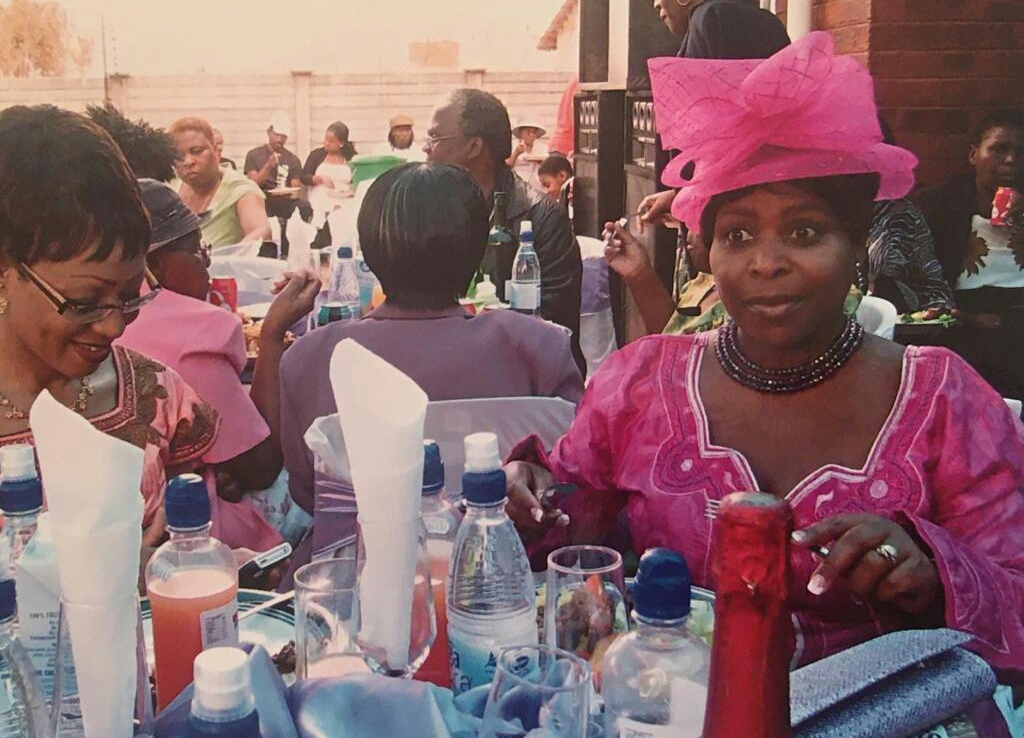
How did your time in Zambia affect the trajectory of your life?
I was lucky because I stayed with these other 3 ladies who had done shorthand. I always used to see them practising shorthand and I asked them what kind of writing it was. They told me it was shorthand. I’d never heard about shorthand. When I was in Tegwane I was hoping when I finished school I would be a teacher because teachers are the ones who were there around us. I used to admire teachers. When they told me about this shorthand thing I asked them what you could do with shorthand and they told me if you did it with a diploma in secretarial studies you could become a secretary. They told me when you go back home you could work in high rise offices as a secretary and I was so happy and inspired.
When the time came to choose courses I was told I should go to Poland to do nursing, I said no, I want to do shorthand. At another time they said I could do French. I asked them what I would do with French, they said you can become an interpreter. I said no, that’s not what I want. I was asked what I wanted to do exactly. I told them I wanted to do a secretarial course. There was something that was being sponsored by the Common Wealth countries to set up a school in Kafue in Zambia. We were about 100 girls so we started doing a course that included shorthand. As a result of that course, I did end up becoming a secretary, which later led to a job at an international organisation that changed my life.
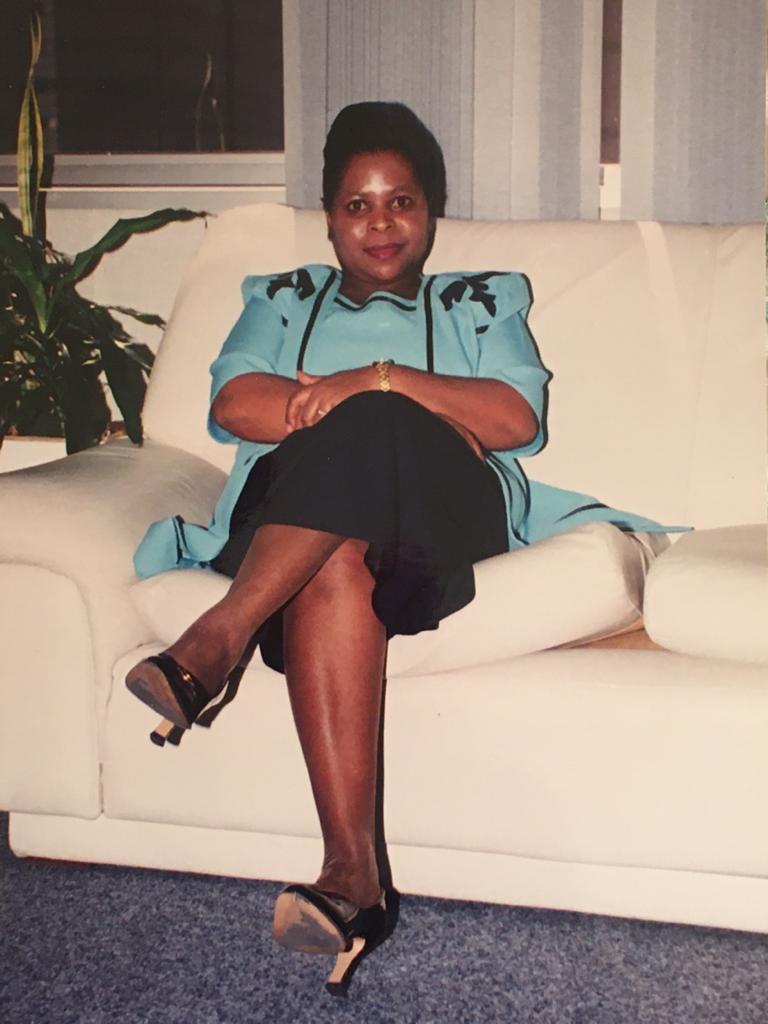
How did you get that job and how exactly did it change your life?
In 1991 I was working for a company in Harare and I had taken leave for a week. When I came back there was someone else in my office. I asked why somebody was in my office. I was told you have been moved to go and work for the Finance Manager. I asked the Human Resources Manager why I was being removed from my position and he said he was told to do that. I didn’t fight with them. I pretended as though I was fine with it but when I got home I knelt down and prayed. I said “God I don’t like what they have done to me. I don’t want to work for this company anymore. Please give me another job.”
I was not someone who ever bought a newspaper, I used to read my boss’ paper but the next day on a Tuesday, I bought my own newspaper. On the bus on the way to work, as I was reading the section for job adverts, there was a position I was interested in. I called the company when I got to the office. They invited me to come with my CV that same afternoon. I went and they registered me for different jobs. Before the end of the day they called to let me know there was an international organisation looking for a secretary. They told me the interview was the next day, on Wednesday.
I went for the first interview on Wednesday morning, it was a practical, typing, writing shorthand etc. Wednesday afternoon I was called to go for the second interview on Thursday. A British man who was head of the programs department interviewed me, there were 3 of us at this stage. The next day, on Friday he called to let me know I had gotten the job. I was so excited. I resigned that same day and gave my 2 weeks’ notice. I didn’t even type the resignation letter, I wrote it on a piece of paper. That’s how I got the job with an international organisation.
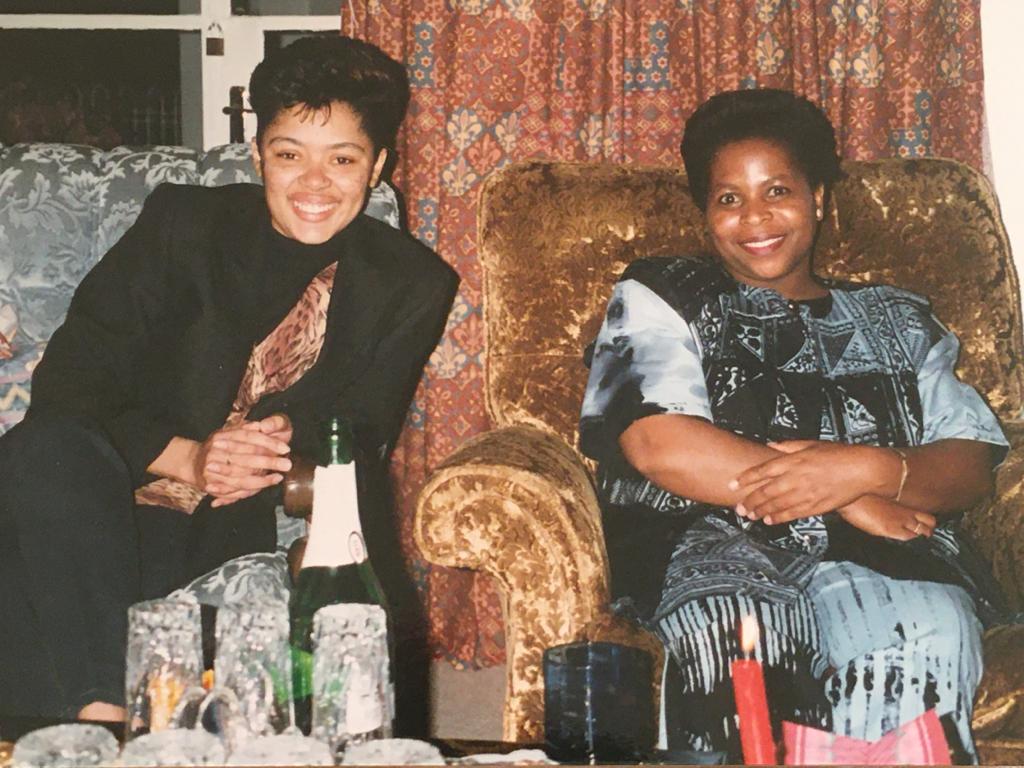
In 1996 I was promoted to senior secretary, I was now the secretary to the CEO. In 2001 I was promoted to the position of Protocol Officer where I used to travel a lot and go to different countries. The promotion took me from support staff status to being a professional staff member which meant a higher salary. As a professional staff member it also meant your children could be educated outside of Zimbabwe at the company’s cost. That was the year my daughter started university in South Africa. I had saved up for her first year and when I was promoted I got back the money I had already paid.
When you were younger, did you have any dreams or goals for your life? Did you achieve any of those?
Yes I did. In 1983 I was working for the Ministry of Labour when one of the ladies I worked with visited some rich man and she told me “I visited this guy who has a very big mansion, in every room there’s a TV, in every room there’s a phone (there were no cell phones in those days) even in the bathrooms there are phones!” When I got home I told my younger sister that I heard about this rich man and I described his house to her and said to her “I wish I could get a job where I can live like that, have a TV in every room and a phone in every room.” My sister laughed and said “where will you get that kind of money when you are paid by the Government as a civil servant? Stop day dreaming.” I didn’t argue with her, I smiled and told her “one day God will give me that kind of money.”
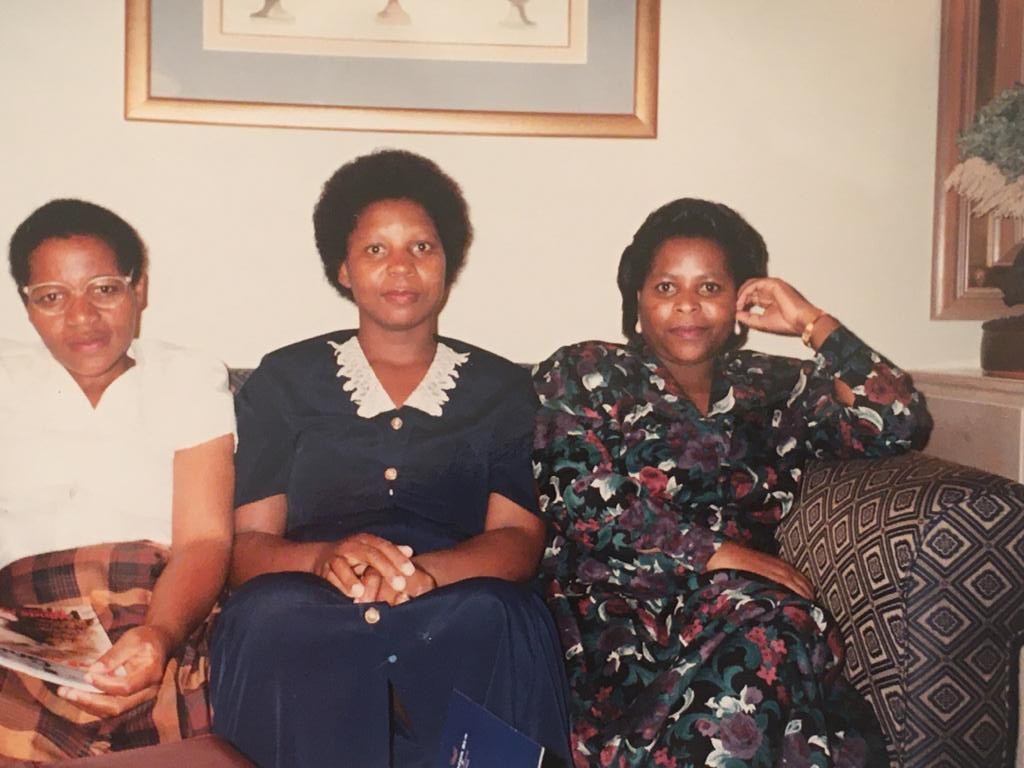
After being promoted in 2001 I managed to get a stand in Bulawayo where I built a 4 bedroom house that would act as my retirement home since I already owned a townhouse in Harare. After retirement I moved to the Bulawayo house and my younger sister, the one I told about the rich man’s house, reminded me of that story and said “look at you, you now live in a house with a TV in every room.” I had completely forgotten about the story. I told her “when you speak out loud God will hear your prayers, it might not happen at that moment, it might take long but God always provides.”
That’s an amazing story, are there any other dreams that came true?
Actually there are many, I’ll just tell you about the 7 dresses one. When we came back after independence, when I was coming from Zambia, I was staying with my sister and I told her that once I get a job I’m going to buy 7 dresses, 5 for dressing going to work and the other 2 for the weekend. She laughed and said “where are you going to get that kind of money here in Zimbabwe? You won’t be able to buy 7 dresses at the same time.” I told her God will provide. I then got called for a job in Harare and before we even started working, we were unexpectedly given a lot of money. I managed to buy the 7 dresses as a result.
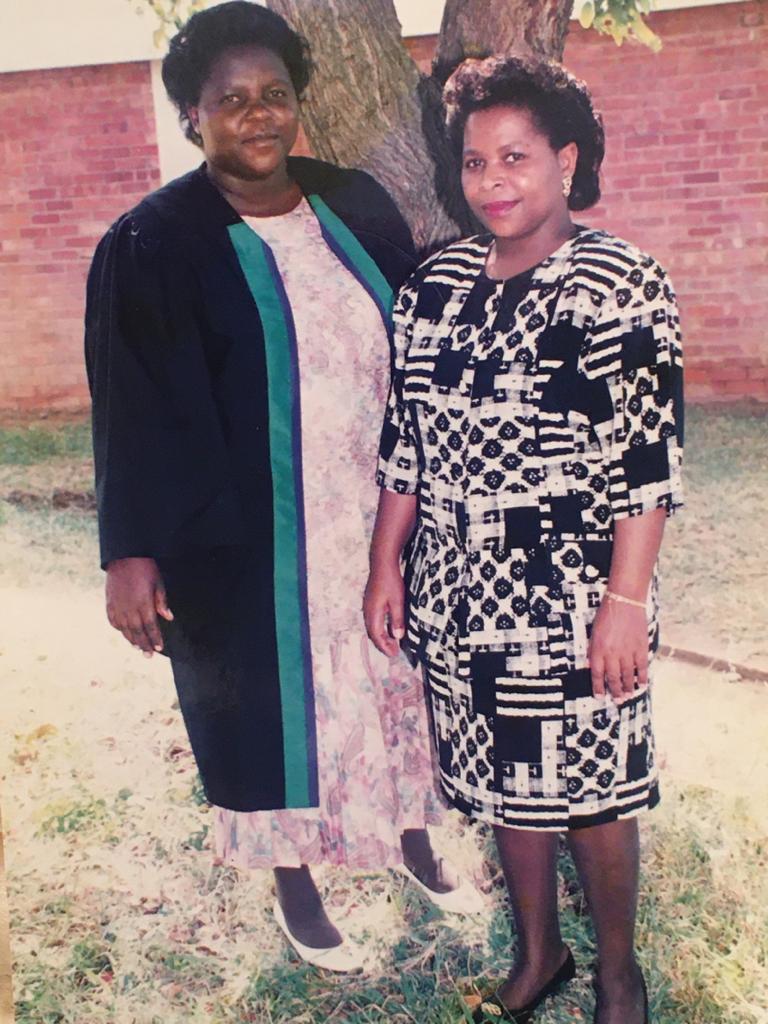
Going back to property ownership, how did you buy your first property outside of Zimbabwe?
It was in 2009 during the global financial crisis, a lot of people at work were now taking their pensions because they were afraid to lose them. I also applied for a loan off my pension and when a colleague, Petronella, saw that I had applied for a loan for that amount of money she called me and asked what I wanted to do with the money. I told her it was none of her business and she said “someone brought a newspaper from South Africa and with the money you took you can buy a property there.” She brought the newspaper to me. It was on a Wednesday, the next day I called the person selling the property I liked, to find out if it was still available and it was. That Saturday I flew into Johannesburg for the day to view the property, I liked it and made an offer. When I was at the airport going back home I was called and told the property was mine if I wanted it. I couldn’t believe how easy the whole process was because before then I didn’t know you could buy property outside of Zimbabwe. Then when I retired I used my pension to buy more property in Johannesburg. None of this would have happened had Petronella minded her own business so I’m grateful to her because she was God-sent.
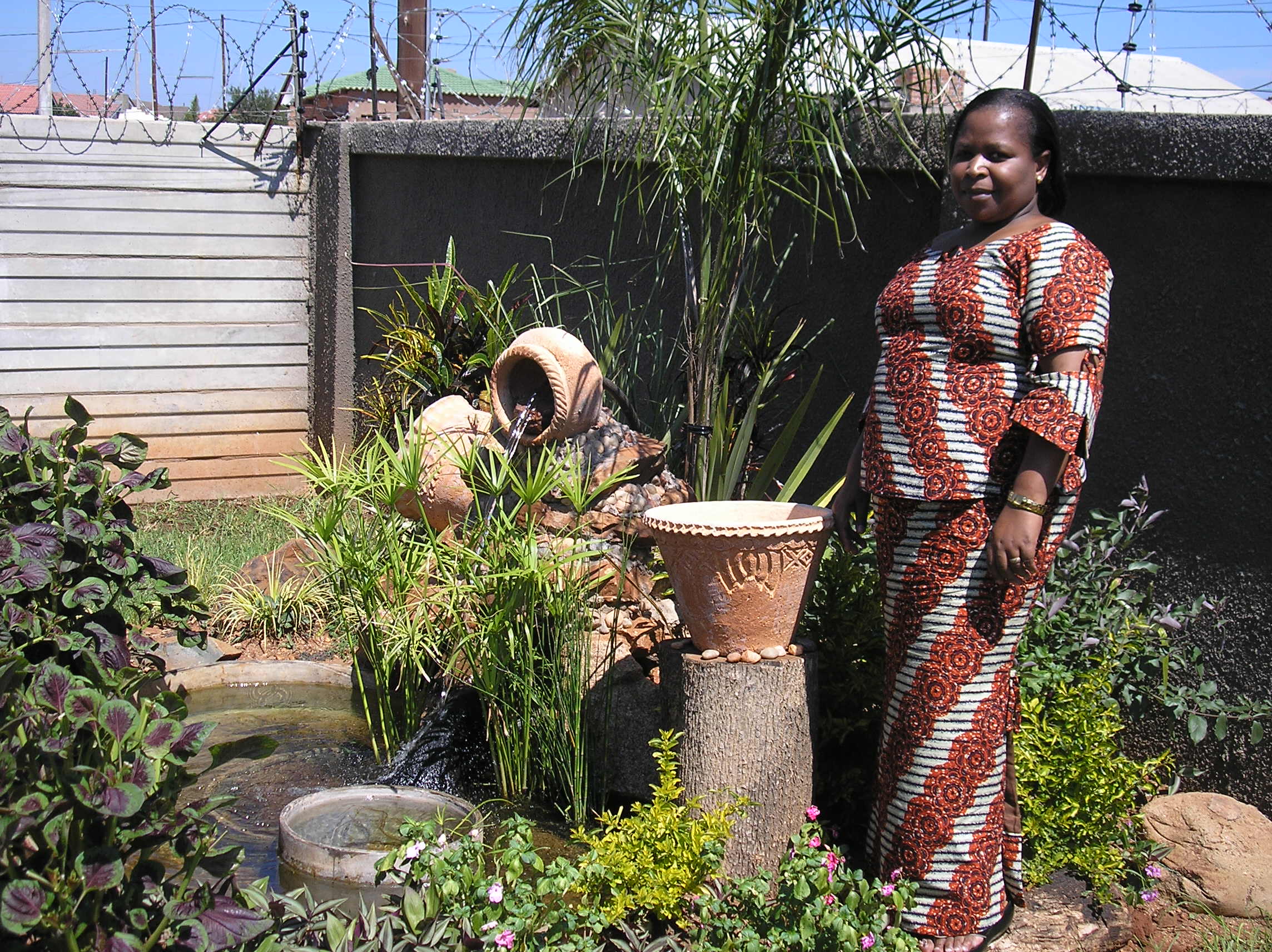
How has being an investment property owner assisted you during the pandemic?
Since I’m retired, the Johannesburg properties helped because I get my rentals and manage to live on those.
If someone wanted to start investing in property, what insights would you give them?
You don’t only have to look at Zimbabwe, look at other countries too. Countries where there is a stable currency. Where you know that if you invest there you will get your rentals on time and in a currency that you want. Investing in Zimbabwe is good but because of the frequent change in currency, you end up getting less and less money out of your investment. If you have the opportunity, buy outside of Zimbabwe. I’m not saying don’t buy in Zimbabwe but look at the returns you will get from whatever property you decide to purchase. When you’re investing, it’s about the returns that you’ll get from that investment. You don’t want to put your money where you may end up getting nothing out of it.

Tell us about the role of travel in your life
Due to my position as the Protocol Officer at the organisation I worked for, I used to travel to different countries in Africa and Europe. I was happy that where I used to work when we travelled anywhere it was in business class. I really enjoyed that because the difference between business class and economy class is huge. You get to meet different people, business people etc. I also loved staying in 5 star hotels. It was wonderful being able to have those experiences. I never thought that in my life I would ever travel in business class or live in 5 star hotels.
What places have you travelled to?
I’ve travelled to many cities in different countries. I don’t think I could name all the cities but I can try with the countries. Let me see which ones I remember, Malawi, Uganda, Botswana, Kenya, Zambia, Tanzania, Mali, Ethiopia, Ivory Coast, Senegal, Benin, Ghana, Nigeria, Mozambique, South Africa, Swaziland, Dubai, Tunisia, Namibia, France and Austria.
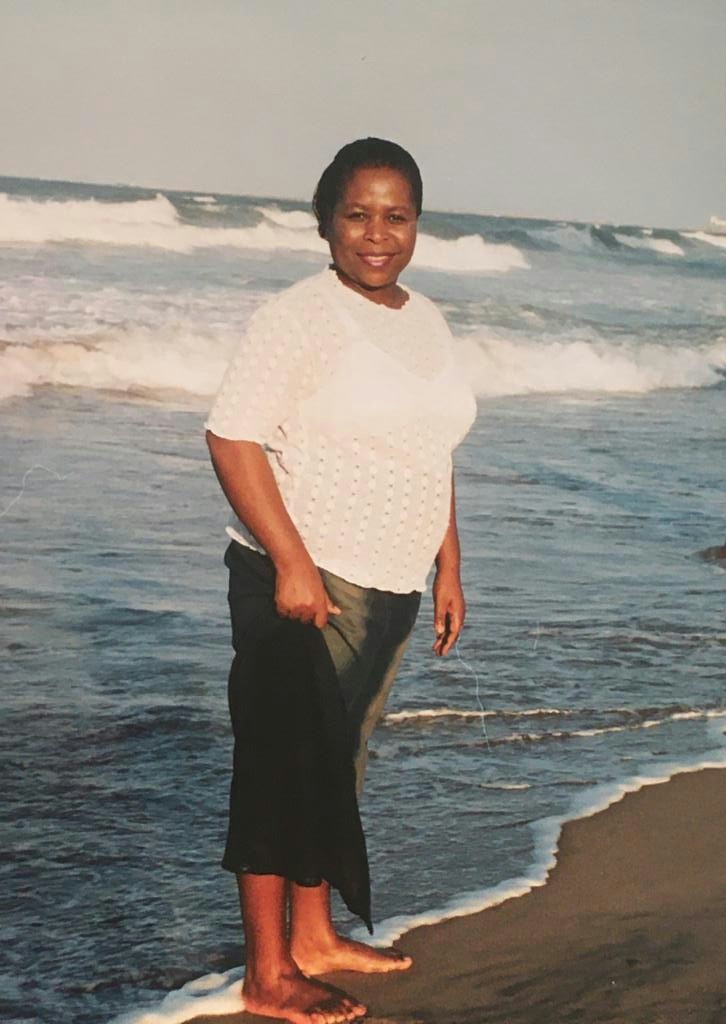
What did you love about the countries you visited?
I loved how welcoming the people of Uganda were. Whilst in Uganda we also got to go to a place called Mweya Safari Lodge by road so we got to see more places as a result. I loved Kenyans too. I think I enjoyed my East African stays more. I also enjoyed my stay in Nigeria, in Abuja.
What was the main lesson you got from your travel experiences?
Although I used to stay in amazing hotels and have great experiences, the main lesson was that there is no place like home. I love Zimbabwe and travelling to different places showed me that even more.
Growing up, did you imagine you would do the things you’ve been able to do in your life?
I didn’t think I would. When you grow up in the village like I did you’re not exposed. You’re staying in the village with no TV. We would hardly come to town. When we came to town, it was to see an aunt who worked for a white family, living in the servants’ quarters, in one room, cooking and living there. I was thinking we were better off in the village because there was more space and more room. I never thought I would own my own house, let alone houses. All I thought about was village life. It was only when I went to High School where my friends were telling me about a different kind of town life. I had a close friend of mine whose parents were rich. For me my father was working as a gardener and cooking for the family he worked for. I never thought I could also one day hire someone to work for me. I thought it was something for rich people only.
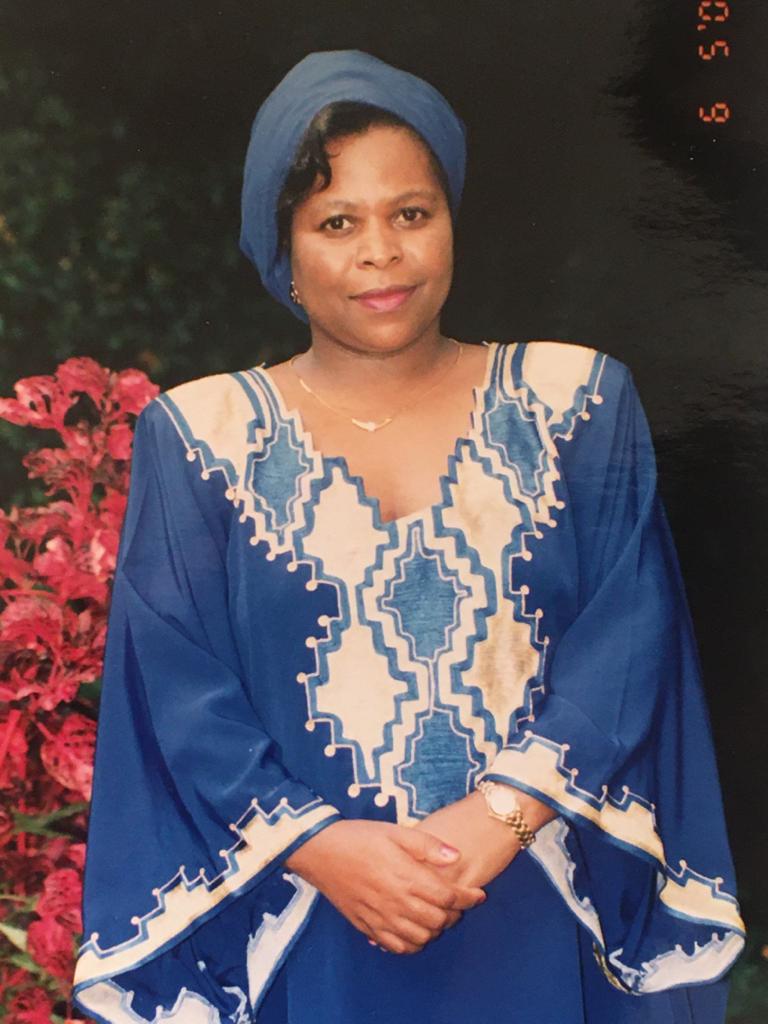
So far, what are you most proud of achieving in your life?
Being able to help my relatives. Even my friends when they were in need. Being able to pay for medical expenses for friends and family, like operations and things like that. When there were fuel shortages when I was still working, at work we could buy coupons to use a UN garage so I would buy a lot of those and give them to friends and family. I didn’t think much of it but now some of them will call me and say “do you remember how you used to help us by giving us coupons when others were sleeping in fuel queues?” I learnt that when you give, God will give you more.
If you were to be well known for something, what would you want it to be? Or how would you want to be remembered at the end of your life?
As someone who used to be giving towards people.
Do you have any people you consider role models?
My mother. Most of the time my father was staying in South Africa so she was the one taking care of us from a young age. She provided us food by working hard in the fields. When I started attending secondary school she would make sure she contributed to my pocket money since my father was paying the school fees. She would make traditional beer and sell it to the locals and from that I would get money to buy things that I needed for school. I appreciate the good work she was doing.
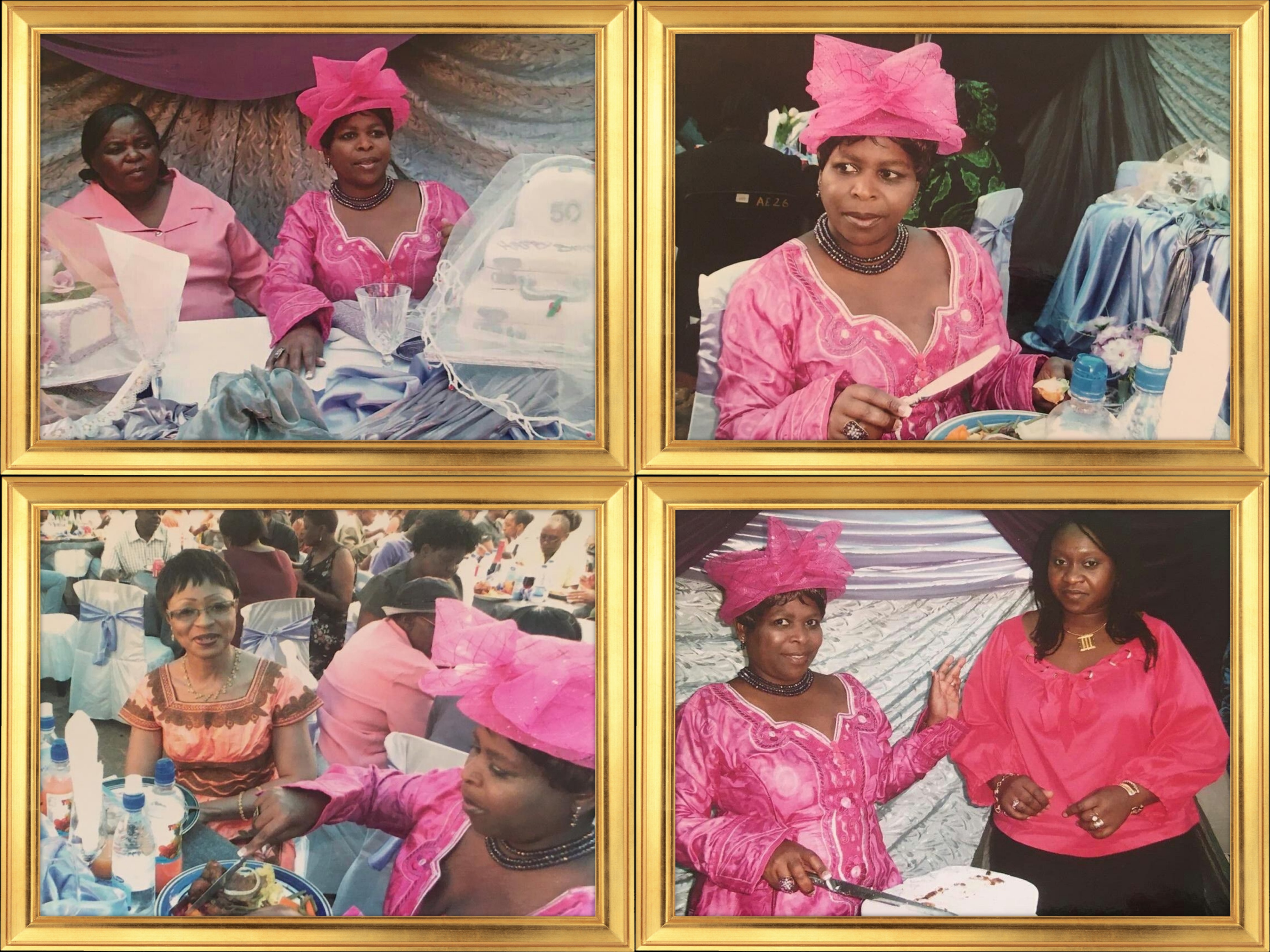
Is there any other notable moment in your life that we haven’t discussed?
That would have to be my 50th birthday celebration in 2011. Since I had retired the year before, I had all the time in the world to prepare for it. I invited lots of people, asking each what they drank so I could buy each person their particular brand of drinks. 100 people were expected but we ended up with over 200 people because people who came would call their friends to join them. My ex-colleagues came all the way from Harare. I felt they were my true friends. Now I’m looking forward to celebrating my 60th birthday later this year, God willing. It will be different because of COVID-19 so it will only be a few immediate family members.
What life lessons or thoughts would you like to leave the reader with?
- When you have, it’s good to give, especially if you have more than enough.
- Respect people always.
- Family is very important, whether you have money or you don’t, know where you came from, for example remember your people in the village. It’s not just about friends, in times of crises, the people that will be there for you is your family.
- You shouldn’t value work more than your family. Don’t focus too much on work because there will come a time when you are no longer employed and you will need your family and relatives. If you stop visiting your relatives when you are working, who will you visit when you don’t work anymore? Ubuntu is very important. In my early days of living in Harare I used to live in a small bachelor apartment and people would visit me from Bulawayo, even up to 5 people at one point. Looking back I don’t know how we managed it but we fit into that small place and we were happy and didn’t see anything wrong with it.
